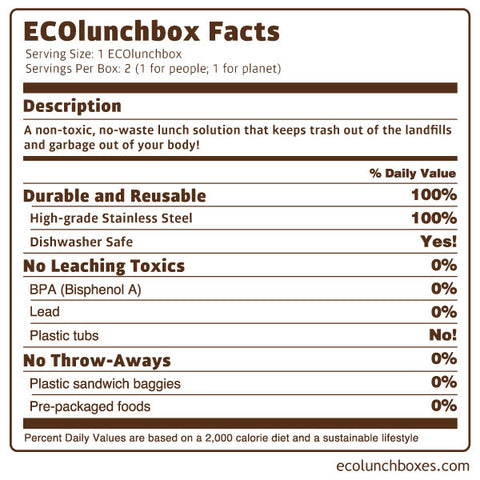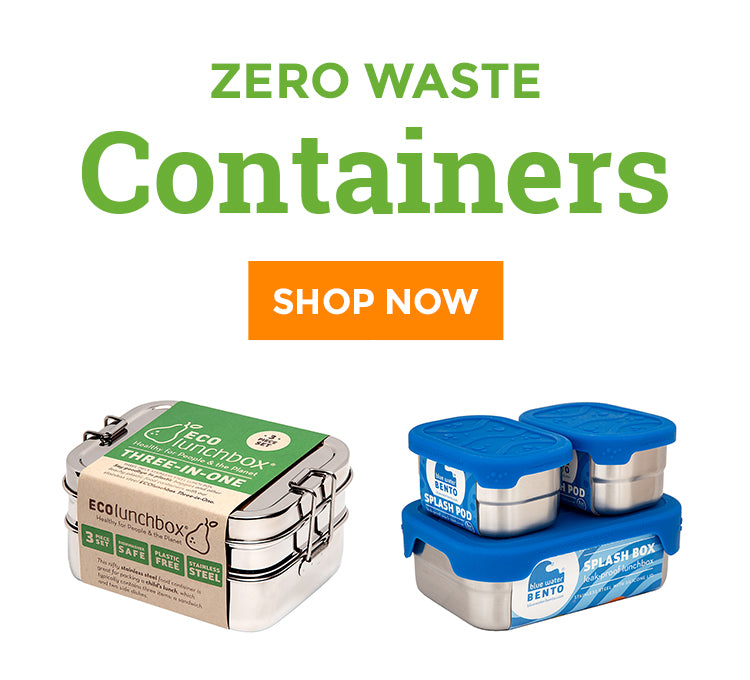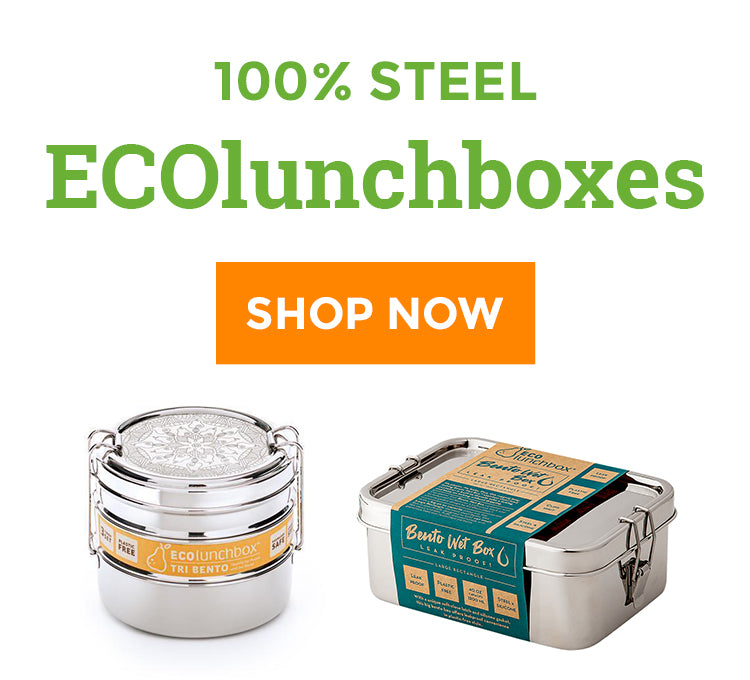Perils of Plastic

Why Think Beyond Plastic?
At ECOlunchbox, we believe that reducing dependence on plastics is a good way to safeguard our health and our planet!
Why is plastic harmful to the environment?
Plastic is poisoning our bodies and oceans. ECOlunchbox was launched in 2008 to educate consumers about this risk and inspire them to use our products to green their lifestyles for the benefit of their own health as well as the health of our planet.
Understanding Plastic Pollution
Environmentalists and scientists have known of the perils of plastics to humans and our ecosystem for 50 years or more. But this information hasn't been widely known until recently. In 2009, consumers were on a steep learning curve to understand chemicals in plastics, such as BPA (bisphenol-A) and phthalates.
Talk of the Great Pacific Garbage Patch and the trillions of pieces of plastic trash floating throughout our seas hadn't started in the mainstream media yet. There was soft chattering of a plastic accumulation among environmentalists following the results of studies by a non-profit research organization called 5 Gyres.
Bad vs. Good Plastic?
Many people were turning to online search engines to try and better understand the perils of plastic or risks of plastic toxins and learn how to avoid them. Savvy consumers were already familiar with reading nutrition labels to watch out for hydrogenated fats, corn syrup and other ingredients we prefer to avoid. Why couldn’t we do the same with plastics… simply avoid the “bad” ones and choose only the “safe” plastics for use in our homes?
It seemed like a good plan to study up on plastics by asking a lot of questions and reading labels. In fact, many plastic products started to be labeled at the shelf as “BPA-free,” which helped consumers in this process of plastics selection. However, labeling was inconsistent, mostly on baby and kids products, and usually absent all together from housewares products. When there was labeling, generally only BPA was mentioned because this was the best-known “chemical culprit” that parents were hearing so much about in the media.
Hazardous To Our Health
Doctors and researchers have linked BPA in numerous studies to hormone and thyroid problems, behavior issues, obesity, cancer, diabetes, and even kidney and heart conditions. A study published in the Journal of Allergy and Clinical Immunology furthermore suggests there is a strong link between exposure to BPA and the increasing incidence of asthma.
Starting in about 2012, mainstream newspapers, magazines and television stations, such as the New York Times, San Francisco Chronicle, Dateline NBC and scores of other media outlets, finally started to write about these health problems associated with plastics.

News reports widely explained that chemicals in plastics are perilous to human health because they are endocrine disrupters and hormone mimickers. These toxins are also harmful to the environment because less than 1% of plastics internationally are recycled and the remainder of discarded plastics is put in landfills or lost in the environment and will never biodegrade.
Introducing... Bisphenol-S
Nowadays consumers are responding negatively to BPA and preferring to buy “BPA-free” plastics. Some manufactures are phasing out BPA. This may sound like good news but in fact alternate estrogen-micking chemicals, such as BPS (bisphenol-S, with the “S” referring to “Substitute”) is being added to plastics instead. Scientists believe this substitute chemical is no better health-wise and possibly more toxic than BPA, according to a 2014 article published in Scientific American.
Endocrine disruptors, like BPA and BPS, disrupt the normal functioning of our hormones. For example, they can be a trigger for increasing production of certain hormones; decreasing production of others; imitating hormones; turning one hormone into another; interfering with hormone signaling; telling cells to die prematurely, etc....
The Need for Conscious Consumption
Embracing Eco-Friendly Alternatives
The ECOlunchbox Difference
At ECOlunchbox, we believe that saying goodbye to plastic can make a difference in our own lives, our environment and pave the way to policies and products that are healthy for people and planet.
While very few of us will ever entirely eliminate this omnipresent petrochemical material from our lives, we can lunch by lunch eat a little cleaner. We can avoid foods pre-packaged in plastics and packing healthy, organic meals in non-reactive and non-toxic food containers made from stainless steel, wood, glass and other natural materials that are healthy for people and the planet.




